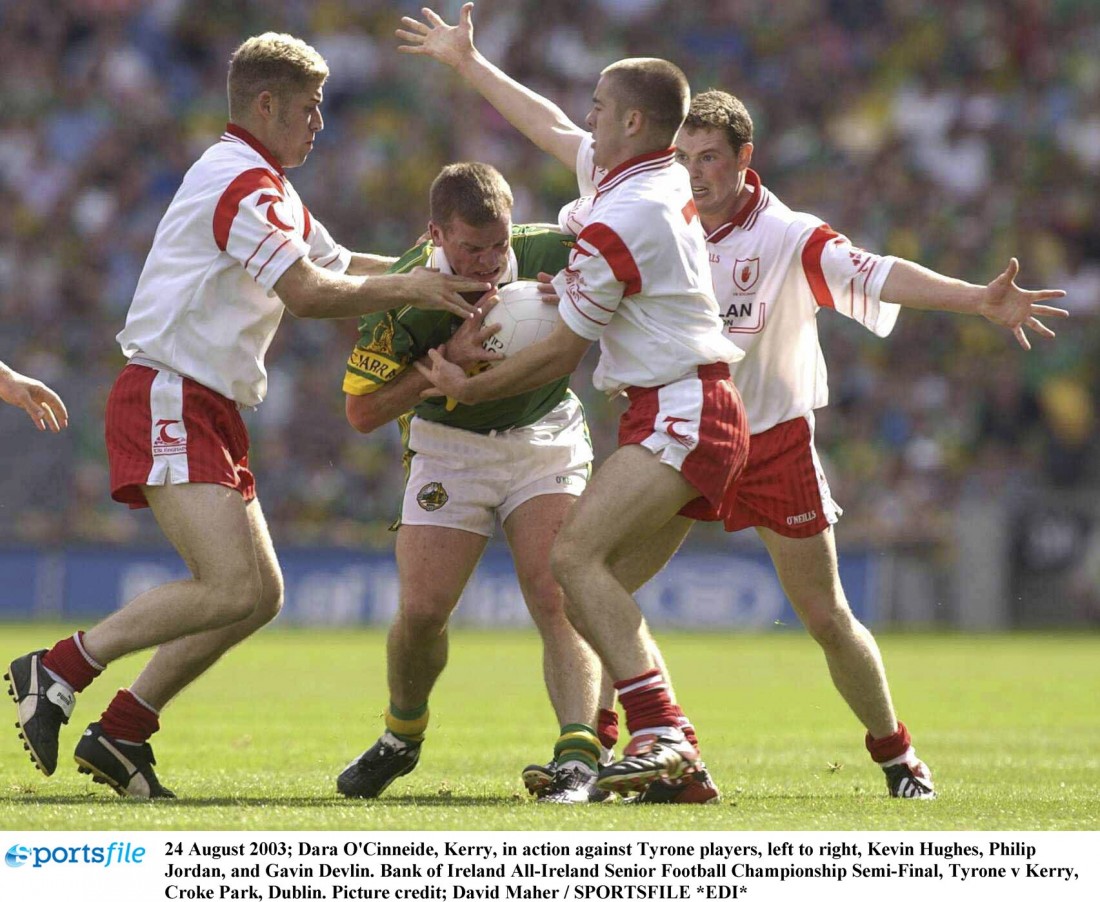GAELIC football has become very tactical at the highest level with more and more teams looking to gain that extra edge on the training ground or on the pitch.
Ultimately though, as an invasion game, the goal still remains the same, to win the game you must score more that the opposition.
The challenge always remains the same in coaching, how do we develop and produce better attacking play in our teams that, in turn, will hopefully lead to more scores? It’s the same for every game you play; you encourage players to move the ball as quickly as possible into the scoring zone enabling your team to have the best chance of scoring and winning the game.
So what aspects of attacking play are we as coaches looking to develop in our team? I feel the following aspects are important to try and develop throughout our training sessions:
Depth – It’s vital to have depth in attack, an outlet, a point/target man that will give your midfield or half-forward line options. Also having a number 11 who provides a crucial outlet across the opposition’s ‘45’ is another pivotal aspect of depth in attack.
Penetration – Either passing or carrying the ball at pace in the opposition’s half of the field. The quicker you make the transition from defence to attack, the less chance the opposition has in setting up a defensive cordon or shield.
Multi-directional movement – A static/linear forward is easily marked while players who pull defenders wide and create space for others are vital in the attacking third. Watch the top forwards in the country, they make three or four decoy runs before the decisive run.
Inventiveness – The players who do something instinctive, outside of the norm and change their style and position during the game. A real creative flair player should be encouraged to play the game as they see it rather than being tied down in a rigid system. Let them express themselves.
Communication – It’s vital everywhere in your team, but particularly up front. Even a hand signal or a point showing where you want the ball can be critical. Communication between your front players is key, they must know when and where to make that run.
Patience – It’s so important your team shows patience now when they attack. Most scoring zones tend to be crowded and it’s vital when you are in possession that you take your time. Try to encourage your players to make the right decision and avoid rash decisions. If you look at Dublin in the final third, their ability to be patient and hold onto the ball for long periods waiting for the right opening and particularly the right personnel to get on the ball is so important.
Pace – You can’t just develop pace in your forward line overnight but if you have pace within your squad, it’s a serious commodity to have in your offensive play. Defenders hate two things, pace and space – and if you can try to isolate players with pace inside you have a serious weapon at your disposal.
Transition – The ability for your team to quickly shift from a defensive mind-set to an attacking mind-set and this might start with your corner-back. If he turns the ball over deep in his own defence, players must quickly switch from the defensive mind-set to the offensive one to give themselves the best possible chance to score on the counter-attack.
Follow your run – When your team breaks into an opponent’s half or breaks from the middle third, it’s important that the players in support of the ball carrier follow their run-out to maybe get on the end of the second or third phase of the attack, or just to simply open up space for others.
Flexibility – I think it’s something that is hugely underestimated and can be developed from an early age. Don’t try to pigeon hole players too early, allow players to experience a wide range of roles and situations in training, so that during games, a midfielder might be able to drift inside for 10 minutes or a corner-forward might just feel as comfortable playing at 10 or 12. If you have players who are more flexible in their roles, you are much harder to work out.
I will be posting a link to a session I delivered in Meath GAA a number of months ago on my Twitter feed @stevie_poacher with some offensive games you can use.
comment@gaeliclife.com
Receive quality journalism wherever you are, on any device. Keep up to date from the comfort of your own home with a digital subscription.
Any time | Any place | Anywhere












